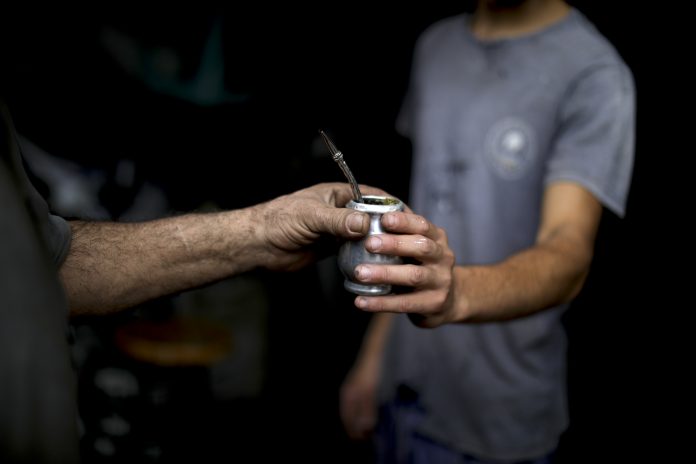
Sharing the mate beverage is an old tradition in parts of South America. The new coronavirus is changing that.
In Uruguay, Paraguay and Argentina, people customarily consume the beverage – made by steeping leaves of the mate plant in hot water – in groups, sharing a metal straw from mouth to mouth. The tradition transcends social classes, is present in the home and workplace, and on hand for just about social occasion.
Even soccer superstars such as Lionel Messi and Luis Suarez have often been seen with a mate gourd in hand. Now, as countries around the world implement social distancing in an attempt to curb the spread of the COVID-19 disease, mate enthusiasts are being urged to consume the beverage individually.
Some people are making a big effort to put health concerns above habits of sharing the social brew. Others, not so much.
“For Uruguayans, it’s always a custom to share,” said 66-year-old Oscar Brun of Uruguay, Brun, who has lived in Argentina for decades, acknowledged that it’s up to the individual whether they want to share the straw as mass anxiety over the new coronavirus sweeps the region.
There are more than 230 reported cases of people infected with the virus in Argentina Uruguay and Paraguay, alarming those who previously thought nothing of passing around the mate straw.
“It’s ugly to be like this, without giving a kiss, without embracing, without sharing mate,” said 67-year-old Roberto Gervasoni. “It’s ugly when you’re deprived of your customs.”
Sociologist Florencia Blanco Esmoris said the mate beverage dates back to use among indigenous people in parts of South America during the Spanish conquest and that today it is “a channel of communication that allows dialogue and social connection.”
She noted that Argentines are developing creative ways to drink mate together, doing so in online gatherings.
Dardo García, a vendor in Buenos Aires, said he is selling a greater number of small cups for consuming mate, since more people are reluctant to share the big cups.



















